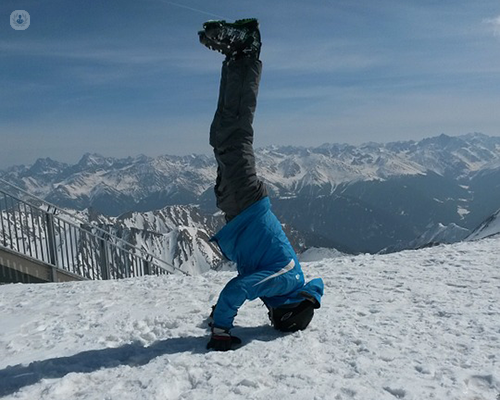Frozen shoulder: symptoms, stages, and treatment
Written by:The less you use your shoulder, the more likely it is that one day it might seize up. Frozen shoulder, also called adhesive capsulitis, is a condition that affects about 3% of the adult population, usually occurring between the ages of 40 and 60. It is more common in women than it is in men. People who are less mobile are also much more likely to develop frozen shoulder.

Frozen shoulder symptoms
Individuals usually experience pain in the shoulder before stiffness sets in as the flexible tissue surrounding the shoulder joint, known as the capsule, becomes thicker and tightens. Unfortunately, this can take between 2 and 9 months, so people with frozen shoulder may have to live with a great deal of pain for a long time.
As stiffness increases, their pain generally lessens. Individuals with frozen shoulder have reported that they experience more pain in the evenings, or when attempting to move their shoulder. It can take up to around two years for a frozen shoulder to heal, with individuals experiencing pain for between two and nine months. Although, in some cases, treatment may be required, frozen shoulder usually resolves itself on its own.
The three stages of frozen shoulder
Frozen shoulder passes through three stages before the shoulder returns to normal. These are:
- The “freezing” stage – when pain is the most pronounced, often making it difficult to sleep at night
- The “frozen” stage – when mobility is significantly reduced. This phase can last anywhere between 3 and 9 months.
- The “thawing” stage – otherwise known as the recovery stage, lasting between 5 and 26 months, when flexibility gradually returns and pain decreases.
Despite its name, frozen shoulder has nothing to do with temperature, and can occur in a hot summer heatwave just as much as in a winter cold spell.
What is the treatment for frozen shoulder?
Even though frozen shoulder heals over time without any intervention, there are a number of measures that can be taken to provide pain relief and improve quality of life. Certain painkillers, such as codeine, that give shoulder pain relief. Exercises and physiotherapy can also alleviate frozen shoulder symptoms.
If you think you are developing frozen shoulder, or even if you’re already in the “frozen” stage, speak to a specialist to find out what will best work for you.


